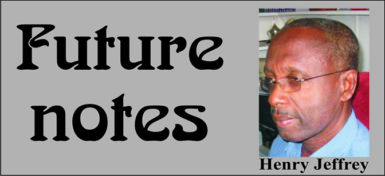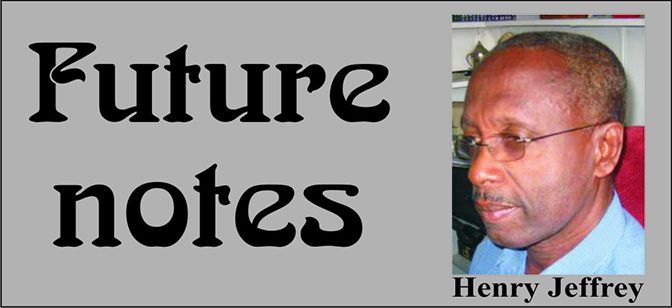 ‘Is it possible to vote and/or encourage others to vote racially and not be a racist?’ The incident involving Ms. Lloyda Nicholas-Garrett, President David Granger’s public information and press officer, was being considered when the above question was raised. Briefly, in a private group on Facebook, she has allegedly made ‘racial slurs’ by referring to some of her work colleagues by the derogatory term ‘coolie’. Accusations of racism in public office and calls for her to be disciplined abound. Notwithstanding her right to freedom of speech and privacy, given her employment location and our understanding of its relation to race/ethnicity, a form of discipline is required. Yet it appears to me that the opening question of this paragraph arose to suggest that we are still dealing at the periphery and have not come to grips with the gravamen of our situation.
‘Is it possible to vote and/or encourage others to vote racially and not be a racist?’ The incident involving Ms. Lloyda Nicholas-Garrett, President David Granger’s public information and press officer, was being considered when the above question was raised. Briefly, in a private group on Facebook, she has allegedly made ‘racial slurs’ by referring to some of her work colleagues by the derogatory term ‘coolie’. Accusations of racism in public office and calls for her to be disciplined abound. Notwithstanding her right to freedom of speech and privacy, given her employment location and our understanding of its relation to race/ethnicity, a form of discipline is required. Yet it appears to me that the opening question of this paragraph arose to suggest that we are still dealing at the periphery and have not come to grips with the gravamen of our situation.
In relation to Ms. Nicholas-Garrett the president, having ‘examined the information’ stated that his presidency does not ‘engage in that type of language’ and that what he heard does not represent the ‘personal philosophy’ of the lady (SN:15/09/2017). I take the latter to mean that he does not believe Ms. Lloyda-Garrett is a racist. In a somewhat different context, one would have had to be both deaf and blind not to recognise that former president Mr. Bharrat Jagdeo has engaged in ethnic mobilisation, particularly at the tail-end of the 2015 elections. However, while he and many around him would – possibly tongue in cheek – deny that he was involved in such an activity, even if true they would consider it merely ‘playing politics’ and object vociferously to any suggestion that being racist constitutes any aspect of their ‘personal philosophy.’
The racial/ethnic strife that pervades our political process is well known and periodically becomes highly visible. After nearly three decades of PNC rule from 1964 to 1992, which many persons of African ethnicity agreed at the very least fell far short of our independence expectations, the vast majority of them still trotted to the polls to vote for their ethnic party in 1992, and the situation was not too dissimilar in 2015, after more than two decades of PPP/C rule, which left us more divided than ever. Thus, there is a national consensus that the vast majority of Guyanese, particularly those of Indian and African ethnicities, cast their vote in an ethnic/racial manner, i.e. they are what I will call ‘political racists’.
Those of this tendency tend to argue that their support for their ethnic party resulted from the other party having treated them badly, i.e. their ‘political racism’ is defensive – a legitimate effort to protect the group interest. According to this way of thinking, racism only truly exists when a group of people discriminates against others because they believe themselves to be superior in some way. There can be much debate and speculation about the meaning and the extent to which superiority racism exists in our society, but what cannot be denied is that it is impossible for political racism to be sustained over decades if it is not rooted in negative beliefs about the other side – they are lazy, sly, racists, thieves and stupid, etc. – namely if it does not dehumanize the other and make them lesser. So nothing is racist if such a broad-based dehumanization is not!
I believe, then, that it is fair to conclude that all of us who encourage others and claim to vote even defensively are essentially racists. Though it might be understandable, it would not prevent a leadership and people from being designated racists even if they were acting politically defensive to prevent what they perceived to be their endangerment. After all, more humane political choices are all around us.
But with some encouragement from Aristotle, allow me to go somewhat further. He stated in Nicomachean Ethics, ‘If, then, there is some end of the things we do, which we desire for its own sake … and if we do not choose everything for the sake of everything else clearly this must be the good and the chief good. Will not the knowledge of it, then, have a great influence on life? … If so, we must try, in outline at least, to determine what it is, and of which of the sciences or capacities it is the object. It would seem to belong to the most authoritative art and that which is most truly the master art. And politics appears to be of this nature; for it is this that ordains which of the sciences should be studied in a polis, and which each class of citizens should learn and up to what point they should learn them … [it also] legislates what it is necessary to do and to abstain from.’
I believe that Aristotle is partially correct, for whether or not we believe that human life is directed towards a chief good and that there is an individual or collective divine purpose to our living or that each individual simply lives to her/his own purpose, politics does appear to be the preeminent activity. Our experience in the 1970s/1980s and what our neighbour Venezuela is now going through, are clear indications that it determines how we progress, how free we are and will become. To take away my right to freely express my political self, my right to determine how, by whom and for what purpose I shall be governed, my right to find a kind of Rousseauian ‘general will’ that contains the best possible social outcome for us all, is to deny me – and as a matter of fact you – the purpose for existing and being in society. The action of both those who vote and those who encourage them to vote in an ethnically biased manner prevents such an expression for it artificially limits that capacity that can only be truly be manifested in society by way of open and fair democratic participation.
We want to believe that it is possible to be apolitical but not a general racist because too many of us are the former and being a racist runs counter to sensible living and is against the higher moral values of a modern progressive society. Furthermore, politicians so designated will find it difficult to, where necessary, broaden their internal political alliances and navigate global relations. Yet, how groups arrive at and are maintained in this ethnic ideological condition is the stuff of our political relations; it is what our politicians do at their bottom houses, in their negative rumour mongering and other not so public affairs.
So contrary to what the president believes, if the vast amount of Africans or Indians who support the PNC or PPP are racists of sorts, particularly given her positioning in the political fray, it is more likely than not that Ms. Nicholas-Garrett, like her nemesis, opposition MP Mr. Nigel Dharamlall and most of the political elites in Guyana, including Mr. Jagdeo, are similarly entangled. Therefore, the essential task of all of us, particularly the political leadership, is to not encourage ethnic voting and shelter under the bogus notion of playing politics. It is for us to adopt other means to remove or seriously mitigate the negative effects of our existing political relations, or all the wealth in the world will not stop, and will possibly exacerbate, the ethnic bickering and tension.










